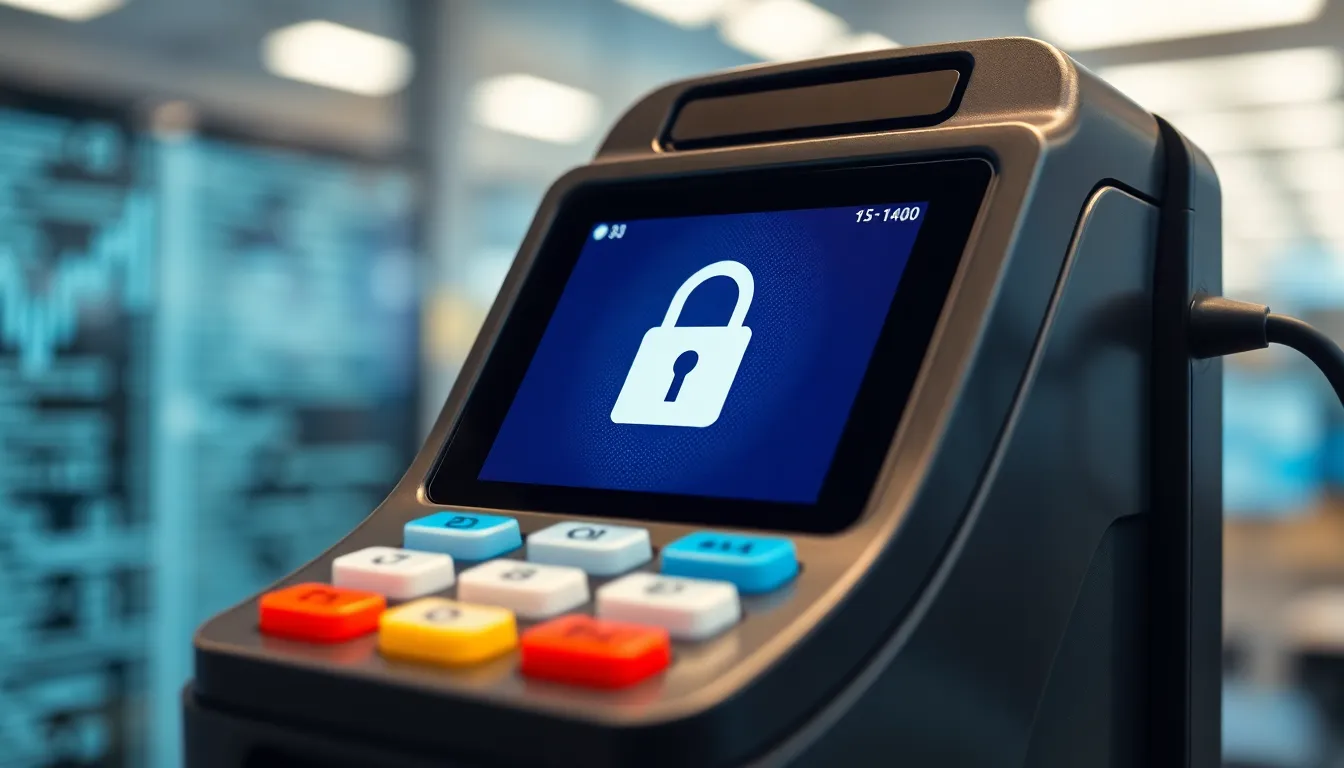In today’s digital age, ecommerce security is more critical than ever. With millions of online transactions happening daily, businesses and consumers alike face increasing threats from cybercriminals. Protecting sensitive information like credit card details and personal data is essential for maintaining trust and ensuring a safe shopping experience.
As technology evolves, so do the tactics of hackers and fraudsters. Companies must stay ahead of these threats by implementing robust security measures. From encryption protocols to secure payment gateways, understanding the landscape of ecommerce security can help businesses safeguard their assets and enhance customer confidence. Prioritizing security not only protects against potential breaches but also fosters long-term relationships with customers, making it a vital aspect of any successful online venture.
Table of Contents
ToggleUnderstanding Ecommerce Security
Ecommerce security involves protecting sensitive data and ensuring safe online transactions. Businesses must understand its significance to build trust and safeguard themselves against cyber threats.
Definition and Importance
Ecommerce security refers to the measures taken to protect online transactions and customer data from unauthorized access. This security encompasses various protective actions, such as SSL certificates, secure payment gateways, and data encryption. The importance lies in maintaining customer trust, complying with regulations like PCI DSS, and avoiding financial losses from breaches. A strong security framework not only prevents data theft but also enhances the overall shopping experience, leading to increased customer loyalty.
Common Threats to Ecommerce Security
Businesses face several threats that undermine ecommerce security. These threats include:
- Phishing Attacks: Cybercriminals use deceptive emails or websites to steal sensitive information.
- Malware: Malicious software can compromise systems and data integrity.
- SQL Injection: Attackers exploit vulnerabilities in databases, allowing unauthorized access to information.
- DDoS Attacks: Distributed Denial of Service attacks overwhelm servers, leading to service outages.
- Payment fraud: Fraudsters utilize stolen credit card information to perform unauthorized transactions.
Each threat poses risks that compel businesses to invest in robust security solutions.
Key Components of Ecommerce Security


Ecommerce security encompasses various vital components that work together to ensure the safety of online transactions and customer data. Among these components, secure payment processing and data protection through encryption stand out as critical measures.
Secure Payment Processing
Secure payment processing involves various methods and technologies that protect financial transactions. Using Payment Card Industry Data Security Standard (PCI DSS) compliance, businesses can ensure that customer payment information remains safe. Strong security measures include utilizing tokenization, where sensitive card information gets replaced with unique identifiers, preventing unauthorized access. Additionally, implementing two-factor authentication (2FA) adds an extra layer of security, requiring users to verify their identity through a second method, such as a text message or authentication app. Regular audits of payment systems can identify vulnerabilities and enhance overall security, ensuring safe transactions for both customers and retailers.
Data Protection and Encryption
Data protection relies heavily on strong encryption techniques to secure sensitive information. SSL (Secure Socket Layer) certificates provide a secure channel for data transmission between users and websites, encrypting data to prevent interception. Utilizing end-to-end encryption ensures that data remains confidential throughout the entire transaction process. Businesses should also adopt data minimization practices, collecting only the necessary information to reduce the risk of exposure. Regularly updating encryption protocols, such as moving to the latest version of TLS (Transport Layer Security), ensures that security measures align with industry standards and protect against emerging threats. By prioritizing data protection through effective encryption, businesses can maintain customer trust and safeguard their sensitive information.
Best Practices for Ecommerce Security
Ecommerce platforms must adopt best practices to ensure robust security measures. Implementing these strategies minimizes vulnerabilities and protects both businesses and customers.
Regular Software Updates
Regular software updates eliminate known vulnerabilities in ecommerce platforms. Companies must apply updates for operating systems, plugins, and security patches promptly. Staying current with software updates lowers the risk of cyberattacks, such as malware infections and exploitation of system flaws. Businesses should schedule regular checks and automate updates when possible to maintain security integrity effectively.
Strong Password Policies
Strong password policies enhance ecommerce security significantly. Companies should enforce requirements for complex passwords, including a mix of upper and lower case letters, numbers, and special characters. Enforcing password changes every 60 to 90 days helps prevent unauthorized access. Additionally, implementing multi-factor authentication (MFA) provides an extra layer of protection, ensuring that only authorized users access sensitive accounts. Regular training on recognizing phishing attacks also empowers employees to maintain security integrity.
Future Trends in Ecommerce Security
Ecommerce security is evolving rapidly, with innovations shaping the future landscape. Emerging technologies promise enhanced protection against cyber threats and ensure consumer data stays secure.
Artificial Intelligence in Security
Artificial intelligence (AI) plays a pivotal role in enhancing ecommerce security. It enables predictive analytics to detect suspicious activities in real time. AI-driven tools can analyze transaction patterns, identifying anomalies that indicate potential fraud. Machine learning algorithms improve continuously, adapting to new threats and reducing response times. Businesses can also utilize AI for risk assessment, automating compliance tasks, and streamlining security protocol management.
The Role of Blockchain Technology
Blockchain technology offers a decentralized approach to ecommerce security. It enhances transaction integrity through encryption and shared ledgers, making data tampering virtually impossible. Smart contracts automate processes, reducing human error while ensuring compliance with security policies. Additionally, blockchain’s transparency fosters trust among consumers, as they can verify the authenticity of transactions. Companies that incorporate blockchain can significantly mitigate the risk of data breaches and fraud, solidifying their commitment to customer safety.



